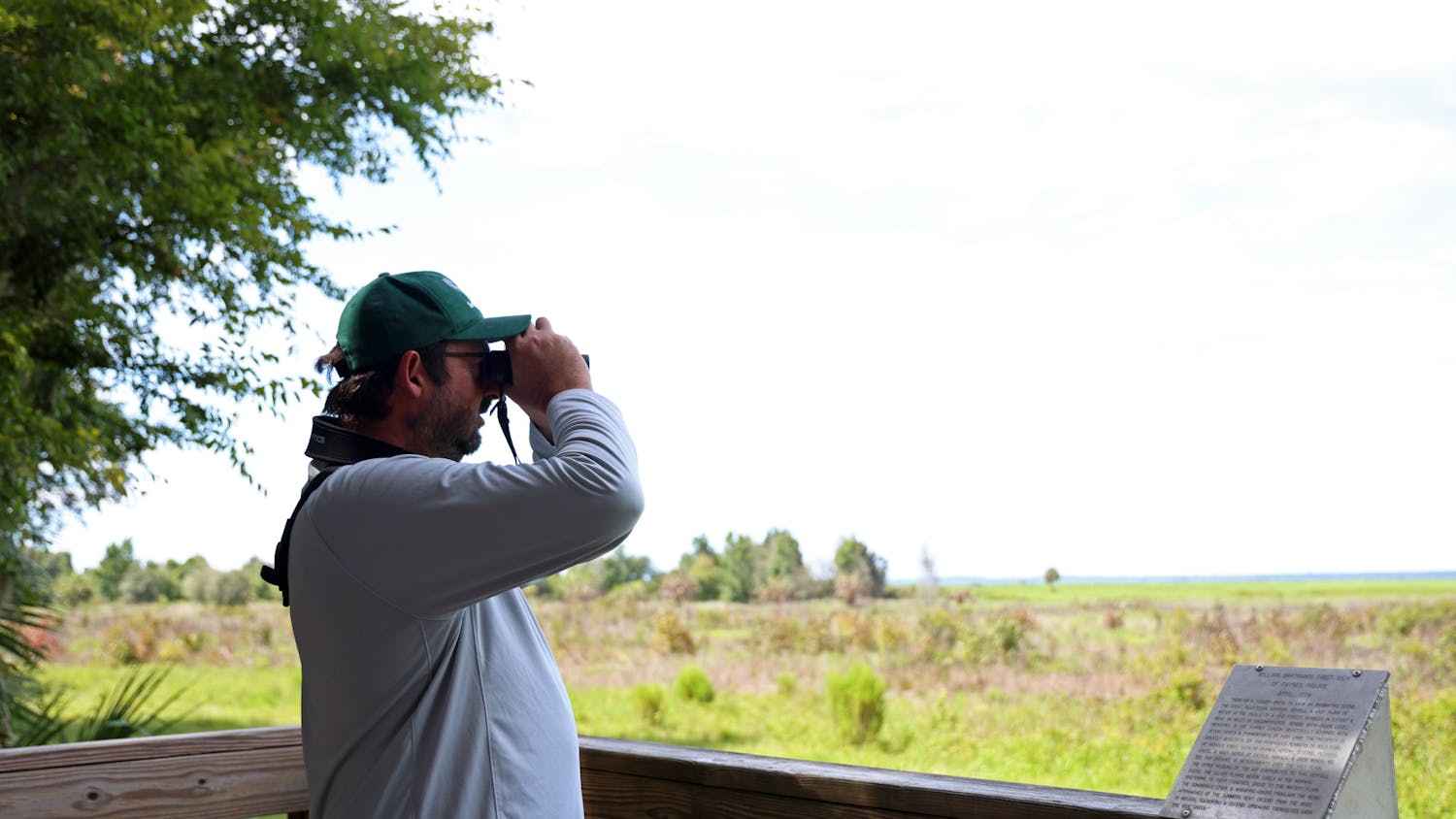People on this campus are rather fond of the environment, and such fondness is difficult to fault. Let's face it; the environment is the perennial team player. What's easy to fault, however, is the idea that it's our turn to step up and take one for the team. Below are three ways you can be self-serving while thanking the environment for being such a good sport.
1. Unbottle your water: In college, you'll burn through bottled water faster than Brazilians through a rainforest. This is a costly mistake. Instead of carting expensive, one-use plastic containers back and forth from the grocery store (that, even if recycled, are one errant throw from ending up in a landfill unto the end of time), buy a reusable container and a filter, such as those available from Brita or PUR. (You can opt for a pitcher or a device that attaches to your sink).
The tap water in the United States is some of the cleanest in the world, and running it through a filter makes the taste indistinguishable from its bottled counterparts (with radically reduced environmental impact). Even considering the cost of the occasional replacement filter and the up-front expense of the filtration device itself, you'll break even within two or so months and the savings will extend for years. Accounting for replacement filters, I've spent less than $50 on my PUR water pitcher and have not had to purchase bottled water once in the years since I've acquired it.
2. Unthink your assumptions: Paper bags are godless wastes of energy when compared to their plastic counterparts. Do I sense righteous indignation? Slow down there, treeslayer; I'll explain.
There are a lot of figures thrown around demonstrating just how much more energy paper bags take to produce than plastic ones, but the most comprehensive analysis I've seen was performed by an environmental engineer who was a guest speaker in Sustainability. His exhaustive analysis of the total water, energy and other inputs that went into manufacturing the respective vessels (from extraction to sale) came up with a difference in the factor of net energy consumed on the order of thousands.
If you're a heavy shopper, I suppose it might be possible to turn paper bags into a winning proposition. Just eat healthfully, avoid bad habits, and be sure to look both ways before crossing the street, because you'll be using the same set of bags for the term of your natural life.
But at the very least paper bags will biodegrade, right? Wrong. Landfills (where your paper bags will consume far more space than plastic ones) are isolated from air and water to prevent air pollution and groundwater contamination.
When you're out grocery shopping, stick with plastic, and if your store of choice is one of the pricier "green" alternatives that dress up your eco-friendly purchases in paper, make sure the extra money you're spending to shop there is for the quality of the goods and not the sake of the environment.
Marketing is replete with other unseemly contradictions, like solar panels (the dark side of which I address here in the fifth comment) and "green" cosmetics (unless the product is USDA certified organic, every label on the bottle could be, and probably is, a lie), so really investigate the factors driving your purchasing decisions before shelling out extra for something with eco-friendly labeling.
There's a lot of green gimmickry out there. Get informed or get rooked.
3. Unplug your lifestyle: Life is great when slathered with copious amounts of energy. Potatoes are great when slathered with copious amounts of butter. In either case, your enjoyment comes at cost. Energy is expensive and the more you consume, the more you pay for each additional unit of consumption. (Marginal cost increases progressively). Now, I know I promised to keep self-sacrifice out of this, but consider the following suggestions as value propositions rather than services to the environment:
For those of you with laptops, while it's terribly convenient to snap the lid shut and go on about your business when your computing is done, it's not fiscally sound; at least, not without slight modification. Usually, closing the lid on your laptop puts the computer into standby, where it will patiently nibble on watts as it waits to spring back to life.
Fiddle with your power scheme, and you can set your computer to hibernate when the lid is shut. This effectively shuts it off, yet allows you to pick up right where you left off without having to suffer through the boot sequence.
Another way to notch down your energy consumption is to notch up your AC whenever you leave your apartment. A couple of degrees can make a difference in digits on your energy bill. Your home may be a little warmer than you'd prefer in the time it takes to cool back down upon your return, but you won't have a watt-guzzling monster feeding on your wallet. Simple adjustments to your blinds aimed at keeping the sunlight out will also help to starve the beast.
Of course, there are the usuals, like shutting off lights and appliances when they're not in use and unplugging them entirely when you leave for large tracts of time, but you've no doubt gotten wind of these from a pamphlet or an environmentalist. Taken together, these steps can keep you from creeping into the higher brackets of energy consumption and paying for the costliest kilowatt-hours.
I know this list seems as thin as my commitment to a healthier, more wholesome environment, but our position with the planet is fairly adversarial, with your wallet and Earth's well-being often working at cross-purposes. Without getting off the bench and into the game, said list is hard to expand on, but if you can manage these paltry adjustments, you'll be sitting a little more comfortably.





